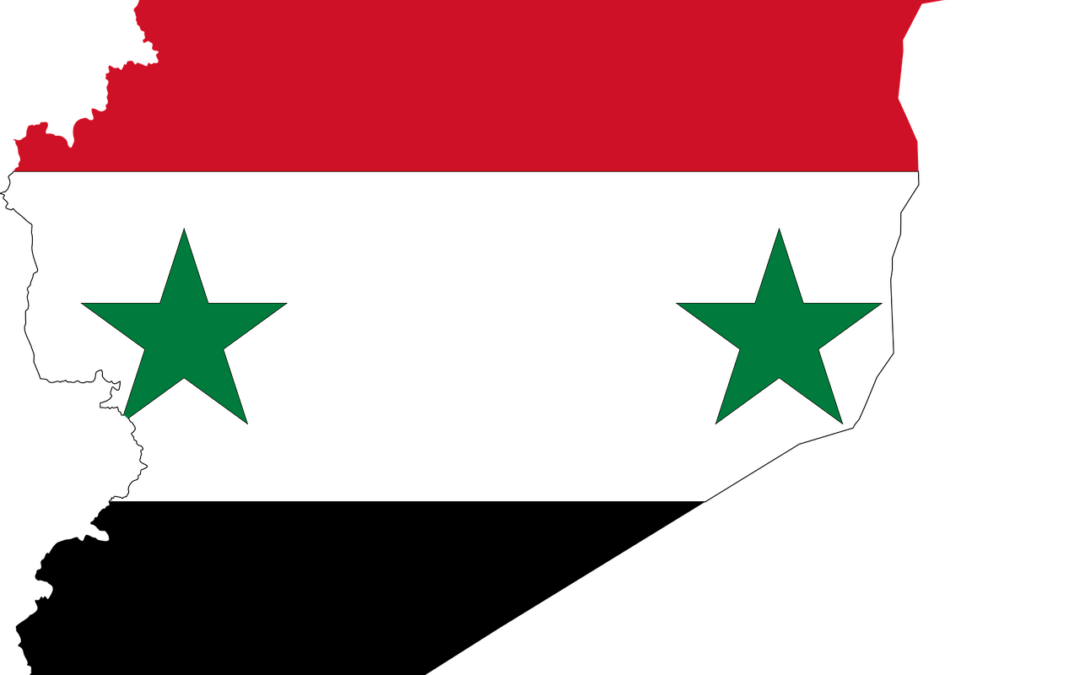Syria!
“There are decades when nothing happens; and there are weeks when decades happen.” - Vladimir Lenin, founder of the Communist Party of Russia.
There was an abrupt end to the civil war that had been going on in Syria since 2011 - the Arab Spring, a time of demonstrations and protests in the Arab world, including Syria. Dictator Bashar al-Assad stood firm at the time. He had a strong army and with the help of Lebanon (and especially Hezbollah forces), Russia and Iran, he brutally suppressed the uprising. It is reported that more than half a million Syrians were killed and millions were driven from their homes during the war, and that six million have become refugees in other countries as a result.
He did not win against the rebels this time. Why?
Ebbing Alliances!
This time, everything was different. The rebel forces cut through the country like a knife through butter, and the official army barely put up any resistance. The largest group among the rebels is “Hayat Tahrir al-Sham” (HTS), an Islamist militant group led by Abu Mohammad al-Jolani. Although these groups have existed since the beginning of the war, they recognized weaknesses in President Bashar al-Assad, and especially in a couple of important countries that were allied with him – Russia and Iran. HTS seized that historic opportunity, and they succeeded brilliantly. But why did Russia and Iran not do anything this time?
Russia
The world saw where the ugly dictator Bashar al-Assad went when the traitor returned. He did what any terrorist would do and fled as soon as he could. And where did he go but to Moscow, where he is safe, under the protection of the president – Vladimir Putin. They will be able to sympathize with each other about what happened in Syria. The huge losses were not only for al-Assad, but for Putin as well. As former Ukrainian foreign minister Dmytro Kuleba said: “Putin threw Bashar al-Assad under the bus, so that he could prolong his war in Ukraine. He is short of resources, and he is not as strong as he makes himself out to be!” Even Donald Trump had a few words to say, saying: “Because Russia is so tied up in Ukraine, and because they have lost more than 600,000 soldiers there, they have not had the ability to stop the march through Syria, a country that they have defended for years.”
There is no doubt that the victory of the rebel forces over the al-Assad regime revealed that what Putin has going on outside Russia is only posturing.
Iran
In recent months, Iran has been unable to thwart Israeli operations. Hamas’s political leader, Ismail Haniyeh, was killed in Tehran. Israel has attacked about 20 military targets in Iran. After a military campaign against them, Hamas and Hezbollah have been badly beaten by Israel, and their military power has been reduced. Iran has been supporting Hamas and Hezbollah because they fight on their behalf. Iran and Hezbollah have been using Syria to transport weapons and supplies to Lebanon. They no longer have that option, and so the Axis of Resistance (Iran, Syria up until now, Hezbollah, Hamas, the Houthis from Yemen and a few other groups in Iraq) is so badly beaten that you would think it is dead. We'll see.
Syria
What is the future of Syria itself? HTS is seeking to install a transitional government, with Mohammed al-Bashir as its leader. He was previously the leader of HTS's territories in the north-west of the country. The leader and HTS will face many difficulties in achieving stability for the country.
The country is home to various ethnic groups, including: Arabs, Kurds, Turks, Assyrians, Armenians, Circassians, Druze, Alawites, Yazidis and Palestinian refugees. There are also people of various faiths, including: Muslims (both Sunni and Shia), Alawites, Christians, Yazidis, Druze and Jews.
The country's economy is in poor condition as a result of the civil war. The economy has been shrinking for more than 13 years - currently one-sixth of its pre-war size.
More than half of the country’s population has been displaced, and an estimated 16.7 million people are in need of assistance. Some 6.3 million are refugees or asylum seekers, and many are now seeking to return home.
Syria is a strategic country in the Middle East, bordered by Turkey to the north, Iraq to the east, Jordan to the south, and Israel and Lebanon to the southwest. The country will be able to exert a major influence on the balance of power in the Middle East, and many other countries will undoubtedly have a vested interest in Syria as a result.
A Steadying Hand?
So far, I have only seen a couple of countries involved in Syria – the United States and Israel. But instead of providing aid to the country, they have been heavily bombing military targets there. What kind of aid is that? Such behavior does not send the right message to Syria, or even to the wider world.
But Syria can be supported through their difficulties. The countries that have imposed sanctions on Syria should ease them soon, and pledge funding to rebuild its infrastructure. The country is also in a humanitarian crisis, and humanitarian aid is urgently needed. It would also be appropriate for the United Nations to introduce a peacekeeping force as an interim measure, until a lasting recovery and political stability can be seen in the country.
While it is encouraging that the Assad regime has been overthrown, this is not over yet, and Syria is currently a fragile state. Let us hope that this is not the calm before the storm, but it is too early to tell.






